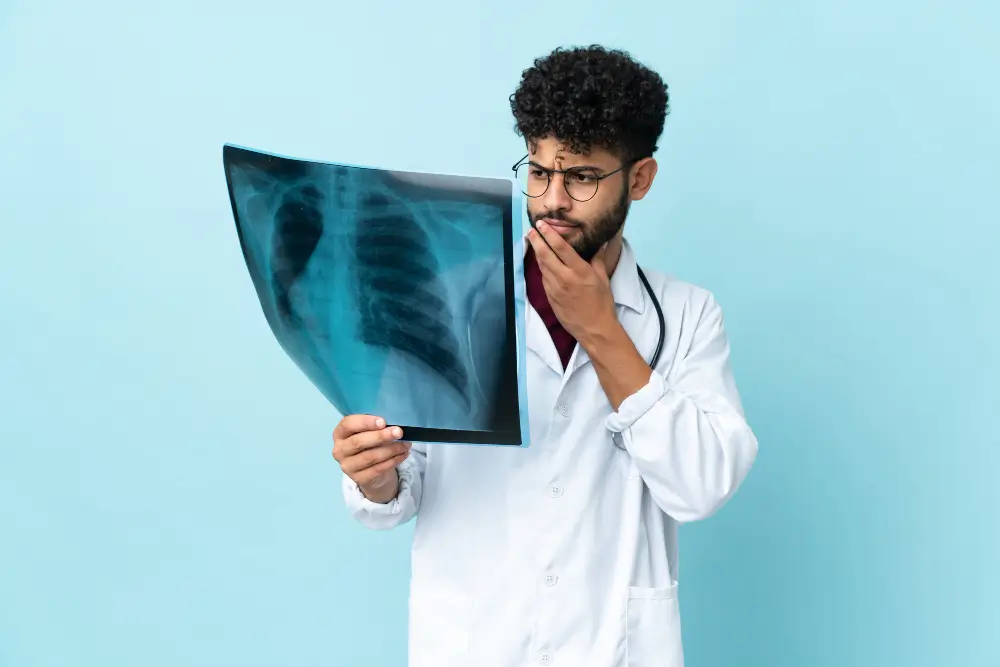Chronic Obstructive Pulmonary Disease, also known as COPD, is a chronic respiratory ailment that impacts millions of individuals worldwide. Unfortunately, despite the number of patients afflicted with it, most individuals go undiagnosed until it progresses to later or more serious stages. In COPD, airflow in and out of the lungs is limited, resulting in difficulty breathing, particularly during physical exertion. With proper education, early diagnosis, assessment, and treatment, those with COPD can significantly improve both quality of life and rate of disease progression. In this article, we will discuss COPD in detail, backed by pulmonary specialist for COPD.

What is COPD?
COPD is a general term and specifically refers to chronic bronchitis and emphysema. Chronic Bronchitis is a persistent inflammation of the bronchial tubes for long periods of time, resulting in a cough and mucus production. Emphysema is damage to the air sacs (alveoli) in the lungs, which decreases the surface area in the lungs for oxygen exchange. COPD is mostly caused by long-term exposure to irritants, like cigarette smoke, air pollution, and occupational dust or chemicals. In rare cases, genetic conditions or options like Alpha-1-Antitrypsin deficiency can also cause or exacerbate COPD in Individuals, demanding a need for chronic lung disease treatment.
What are the symptoms of COPD?
At first, symptoms of COPD can be subtle and even dismissed as a typical respiratory infection or fatigue associated with old age. However, awareness of these trouble signs can lead to early diagnosis of the disease and a better prognosis. Symptoms include:
- Chronic cough, which usually produces mucus
- Shortness of breath, usually with exertion
- Wheezing or a feeling of tightness in the chest
- Frequent lung infections
- Fatigue or difficulty with exercise tolerance
As the condition progresses, activities as simple as walking or climbing stairs may result in respiratory distress.
Diagnosis of COPD
Facilitated diagnosis of COPD is essential in providing the necessary care for this disease. Physicians will typically begin with a thorough personal and health history, along with a thorough physical examination. The principal diagnostic tool is through spirometry, which is simply a breathing test, and measures the amount of air the patient can exhale, or how quickly. Other diagnostic tests may also be ordered such as the chest x-ray, the CT x-ray, and arterial blood gas tests, just to determine the extent of to which the lung damage has occurred, or to rule out other conditions.
Managing COPD for an Improved Quality of Life
COPD is not curable, but with proper management and COPD treatment, you will have an improved quality of life and reduce exacerbation frequency.
- Medications: Patients are commonly prescribed inhalers, bronchodilators, and corticosteroids to dilate airways and reduce inflammation.
- Pulmonary Rehabilitation: Pre-planned exercise programs, as well as controlled breathing techniques, will increase your endurance and help your lung capacity.
- Oxygen Therapy: In later stages of COPD, oxygen will be required for maintenance.
- Lifestyle Changes: Smoking cessation, avoiding fumes and chemicals, a healthy weight, and a healthy diet are all very important components to managing COPD.
- Vaccines: Seasonal flu vaccines, as well as pneumococcal vaccines, are also recommended to help prevent a respiratory infection that may exacerbate your COPD.
If you are searching for the Best pulmonology hospital in Mohali, or the best pulmonary specialist for COPD, Sohana Hospital might be the best destination for you. Sohana Hospital Mohali is home to the World’s most advanced technology and North India’s most trusted and experienced pulmonologists who provide the most comprehensive care for all respiratory ailments of the patients. Book an appointment today!
